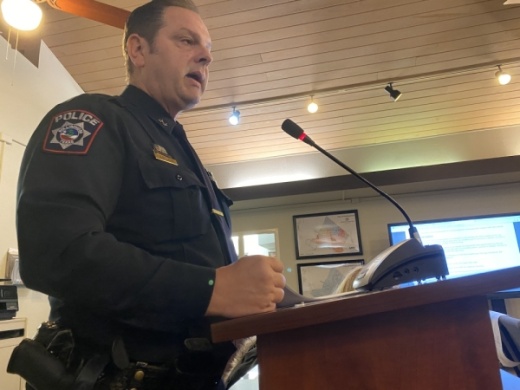That assessment serves as the opening salvo of Rollingwood Police Chief Jason Brady’s new report on officer recruitment and retention.
The recent implementation of signing bonuses for officers is a step in the right direction according to Brady, but further examination and possible action is needed to bulk up the city’s attractiveness to new recruits.
"It's tough times in law enforcement, particularly in terms of recruitment," Brady said to City Council during the Feb. 19 meeting. "While there are nationwide challenges in recruiting and retention, I think it's even more so here in the metropolitan area."
The report states more officers nationwide are electing to leave their departments, and in many cases opting to leave law enforcement altogether.
“This finding is consistent with Rollingwood PDs own recent experience with a loss of 6 officers in 2019 representing over 60% of the department,” the report states. “3 officers went on to work for other area police departments while one left for a private sector job. A veteran supervisor accepted a civilian position with the city of Austin. One officer was dismissed.”
The report lists many other reasons for a dearth of officers throughout the country, but the most prolific reasoning in the report is shown through RPD payroll comparisons to other regional departments.
Salary comparisons
According to Brady’s numbers, Rollingwood’s starting salary for new officers of $51,268 is in line with an average of several other area departments, even though it falls short of Austin’s $60,453, Round Rock’s $59,942 and Cedar Park’s $57,960.
But the real disparity when compared with other departments is shown in officers’ five-year salaries, the report states.
When salaries are adjusted for officers who hit the five-year mark, RPD falls to the back of the pack at $52,152, better only than the Jonestown Police Department within the group provided in the data. Lockhart, Bee Cave, Buda and Sunset Valley police departments all eclipse Rollingwood in officer pay at the five-year mark.
“While Rollingwood may not have the means to match the city of Austin, the need for high quality public safety in Rollingwood is no less than it is Austin,” the report states. “Lessening the gap between the two agencies would be helpful in attracting and keeping qualified officers.”
Through a proposed raise to first-year officer salaries from $51,268 to $52,500, the impact on the city budget would add an additional $54,835 for the first year, according to Brady’s data.
"So that is something we would have to budget for," Brady said.
In his report, Brady also suggests the Rollingwood police could benefit from new vehicles, a department rebranding, updated facilities, high-quality training and other upgrades in incentives.
Council's response
Following Brady's presentation during the Feb. 19 meeting, Council Member Gavin Massingill said he supports Brady, but what he struggled with is the RPD takes up a significant portion of the overall city budget, and that poses a challenge when propped against all of the other goals officials have for the city.
"I guess where I'm coming from, from a budget perspective is ... is we move from 40% of overall budget coming from the police department to 45%-50%; that is unsustainable," Massingill said.
Mayor Michael Dyson said he agreed with Massingill but said the city also would continue to take hits if the RPD could not retain its officers. Therefore, it is critical to act and perhaps search for more revenue streams for the city.
"Truth of the matter is life here isn't getting any cheaper," Dyson said. "You've got to figure out a way to pay for these things, and you've got to commit to it."
Council Member Sara Hutson echoed Dyson's sentiment and said it is imperative to consider the cost of not making plans toward higher officer retention numbers.
"We're coming in at the right level for starting officers, and that's great, but we start dropping off when we hit the three-year mark," Council Member Wendi Hundley said.
Council Member Buck Shapiro said this is one issue he gets hammered on from residents, and people he talks with say they are in agreement with higher taxes if it means keeping the RPD completely staffed and regularly patrolling the city.
Shapiro asked Brady if he could extend his model to show how much the budget cost would go up each year if officers received his recommended pay bump, to which Brady said that would be a prudent step.
"There are a lot of numbers to crunch to give you those kinds of answers," Brady said. "This was just to show you where we are and where I think we need to be."
Upon conclusion of the presentation, council did not take official action but requested more extensive data from Brady on salary numbers and how they will affect the city budget, at which point he will return with the new report at an upcoming council meeting.





